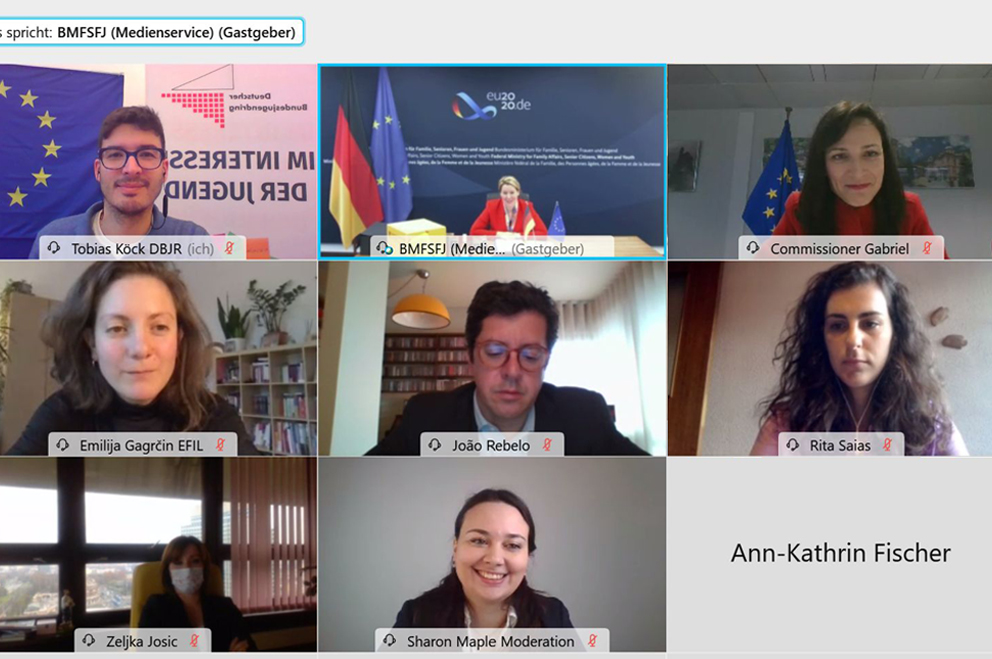Discussion with EU Youth Ministers on international youth exchange

Screenshot: DBJR
Under the leadership of Federal Minister for Youth Franziska Giffey, representatives of the national Youth Councils and the Youth Ministers from the current Trio Presidency states - Germany, Slovenia and Portugal - met with EU Commissioner for Youth Mariya Gabriel, the Director-General for Transport, Energy, Environment and Education at the General Secretariat of the Council, Peter Javorčík, and representatives of the European Youth Forum. In addition, the Croatian Youth Minister and a Senior Expert Advisor for Student Counselling rather than a representative of the independent Croatian National Youth Ring attended the breakfast.
The aim of the informal exchange format was to bring the youth perspective into the political processes in preparation for the meeting of the EU Youth Minister Council. On the topic of international youth encounters and cross-border volunteer activities, the question was discussed of how these can be revived during or after the COVID-19 pandemic. The theme of the Trio Presidency in the youth field is the European Youth Goal #9 "Spaces and Participation for All".
Tobias Köck brought in the perspective of the youth associations and explained how the financial uncertainties for associations organizing youth exchanges have been exacerbated by the pandemic. Short-term cancellations and additional costs put the providers of the offers in a precarious situation. The lack of physical encounters and the strain of Corona also have a negative effect on mental health, particularly among young people. Tobias Köck also emphasized the importance of non-profit youth organizations for international exchange. Only here can intercultural and social skills be taught and learned. Private providers are not an alternative, especially for children and young people from low-income families.
The representatives agreed that the European Union must now take action to revive international youth exchange and cross-border voluntary activities. In addition to the reduction of bureaucratic hurdles, this requires above all secure structural funding for youth organizations and youth networks. As long as there is no physical encounter, alternative digital or hybrid formats must also be financed and the necessary digital infrastructure expanded.
Federal Youth Minister Franziska Giffey promised to introduce the needs and demands at EU level. She emphasized: "We must now work together in Europe to ensure that young people can meet each other in the future. To this end, contacts with international partners must be maintained and digital exchange programs expanded. However, the central goal for me is to ensure that international youth exchange with personal encounters can be resumed immediately as soon as the situation permits".
The EU Youth Conference was mentioned, which we organized together with the Federal Ministry for Family Affairs, Senior Citizens, Women and Youth in October 2020. There, concrete ideas for implementation and political demands were developed on how youth participation and youth-oriented spaces in Europe can be strengthened and thus contribute to the realization of the European Youth Goal #9 "Spaces and Participation for All". The central results of the event have now been incorporated into the conclusions on promoting democratic awareness and democratic engagement of young people in Europe, which were adopted by the Council of the European Union on Germany's initiative.